Freedom of the press: a slow death?
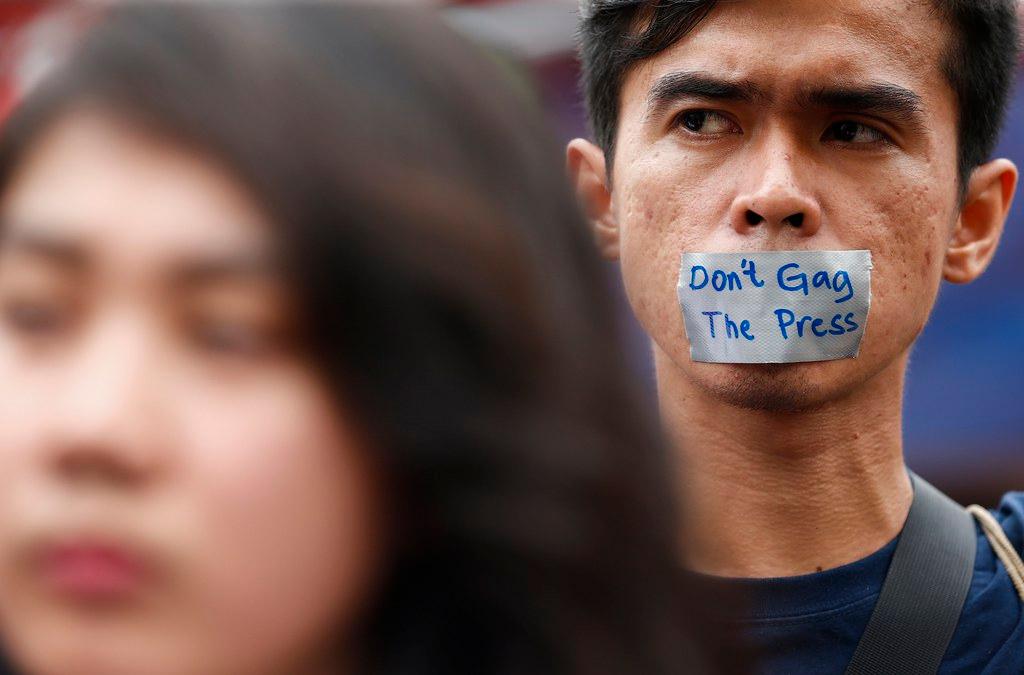
There is a T-shirt that, for a time anyway, enjoyed a certain popularity in the United States. It was even stocked by online retail giant Walmart. It had a simple, and maybe to some, comical, slogan: ‘Rope, Tree, Journalist: Some Assembly Required’. The disturbing implication; that lynching journalists was an amusing idea, perhaps even an amusing activity.
Over the last couple of years my colleagues in North America have seen this T-shirt popping up at Trump rallies, the same rallies at which journalists are confined to media pens and regularly surrounded and jeered at by crowds, some of them wearing those T-shirts.
Meanwhile, the politicians speaking at those rallies, including the President of the United States, described journalists as purveyors of “fake news”, “losers” and “enemies of the people”.
The scenes prompted former UN Human Rights Commissioner Zeid Ra’ad al Hussein, who left office last month, to warn of “a campaign against the media, that could have potentially, and still can, set in motion a chain of events which could quite easily lead to harm being inflicted on journalists just going about their work.”
Freedom to work safely
Here in Geneva, the UN Human Rights Council does take an interest in press freedom: a resolution on the safety of journalists was passed in 2016, and the UN Special Rapporteur on the promotion and protection of the right to freedom of opinion and expression regularly draws attention to repression of the media from Turkey to Myanmar to Russia.
It is perhaps not a debate we Geneva-based journalists focus on as often as we should. Our news priorities are elsewhere: Syria negotiations, the Yemen crisis, or the flurry of trade spats over at the World Trade Organization (WTO).
But last month’s visit to Geneva by US National Security Advisor John Bolton made me reflect on our profession, and the freedom, or otherwise, with which we work.
After talks with his Russian counterpart, Mr Bolton gave a solitary press conference, in which he was asked a number of questions, including, right at the end, whether he as National Security Advisor ever worried that Donald Trump’s admission of paying off women who might have damaging information about him made the president himself a security risk.
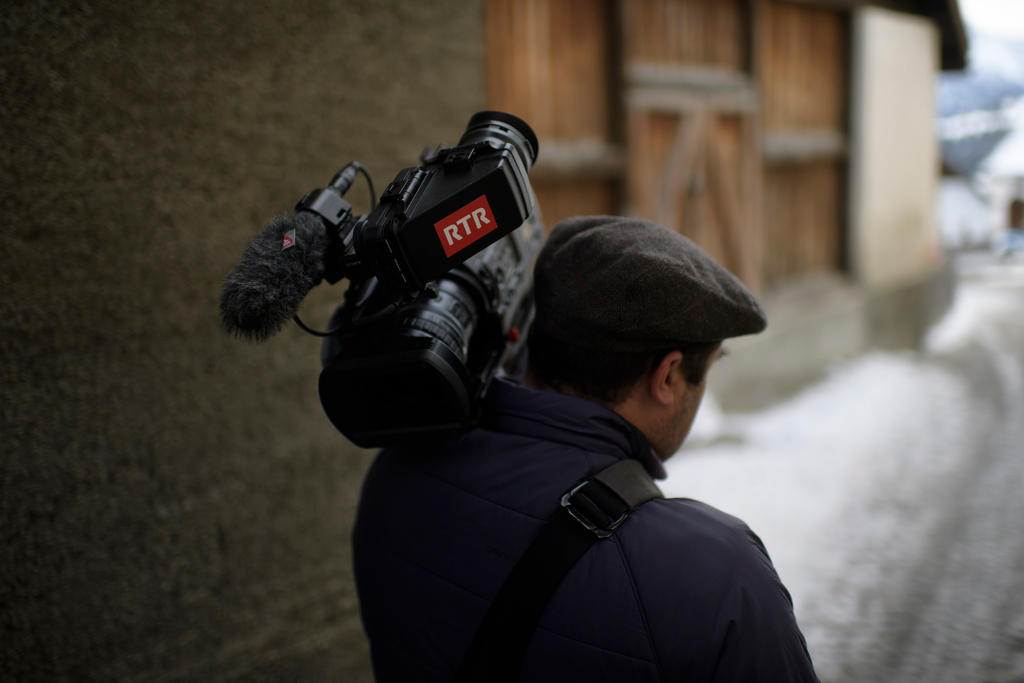
More
Switzerland moves up press freedom ranking amid global slide
Bolton, unsurprisingly, didn’t like the question, and gave a short “that’s a ridiculous question” answer before leaving. A few minutes later, the journalist who asked it (full disclosure, it was me) was hauled alone into a quiet room and bellowed at by Bolton’s spokesman.
‘A disgrace’
This individual, who shall remain nameless so that he can at least suffer in private the subsequent shame I hope he feels, shoved his face into mine, told me my question was “a disgrace”, that I “should be ashamed” and “tell your producers we will never work with the BBC again”.
When he drew breath, I suggested his position was unwise, wished him a good flight back to Washington, and re-joined my colleagues.
I am unharmed by that encounter, but I don’t think my profession is. When did it become reasonable for a spokesperson for a senior government department of an evolved democracy to try to bully and intimidate the press? What was going through that individual’s mind when he chose to take that approach?
I suspect he took his cue from his ultimate boss, President Trump. The regular verbal attacks on the media by the president have made hostility, even intimidation of the media ‘salon fähig’ as German-speakers say, or socially acceptable.
Alarm bells
This kind of treatment should be sounding alarm bells. Let’s go back to those comments from Zeid Ra’ad al Hussein about the campaign against the media. “In that context,” he continued, “it’s getting very close to incitement to violence.”
Rebecca Vincent, the UK director of Reporters Without Borders, says that since 2016: “what we have really noticed is that countries we once saw as [media] standard-setters are slipping, it’s kind of a race to the bottom.”
RSF produces an annual world press freedom indexExternal link: this year the US is 45th out of 180 countries, and, Vincent says, will fall again next year. RSF’s US office also produces a US press freedom trackerExternal link, detailing multiple incidents from a reporter arrested in Denver for taking photographs, to a CNN Washington correspondent denied access to the White House because of “inappropriate questions”.
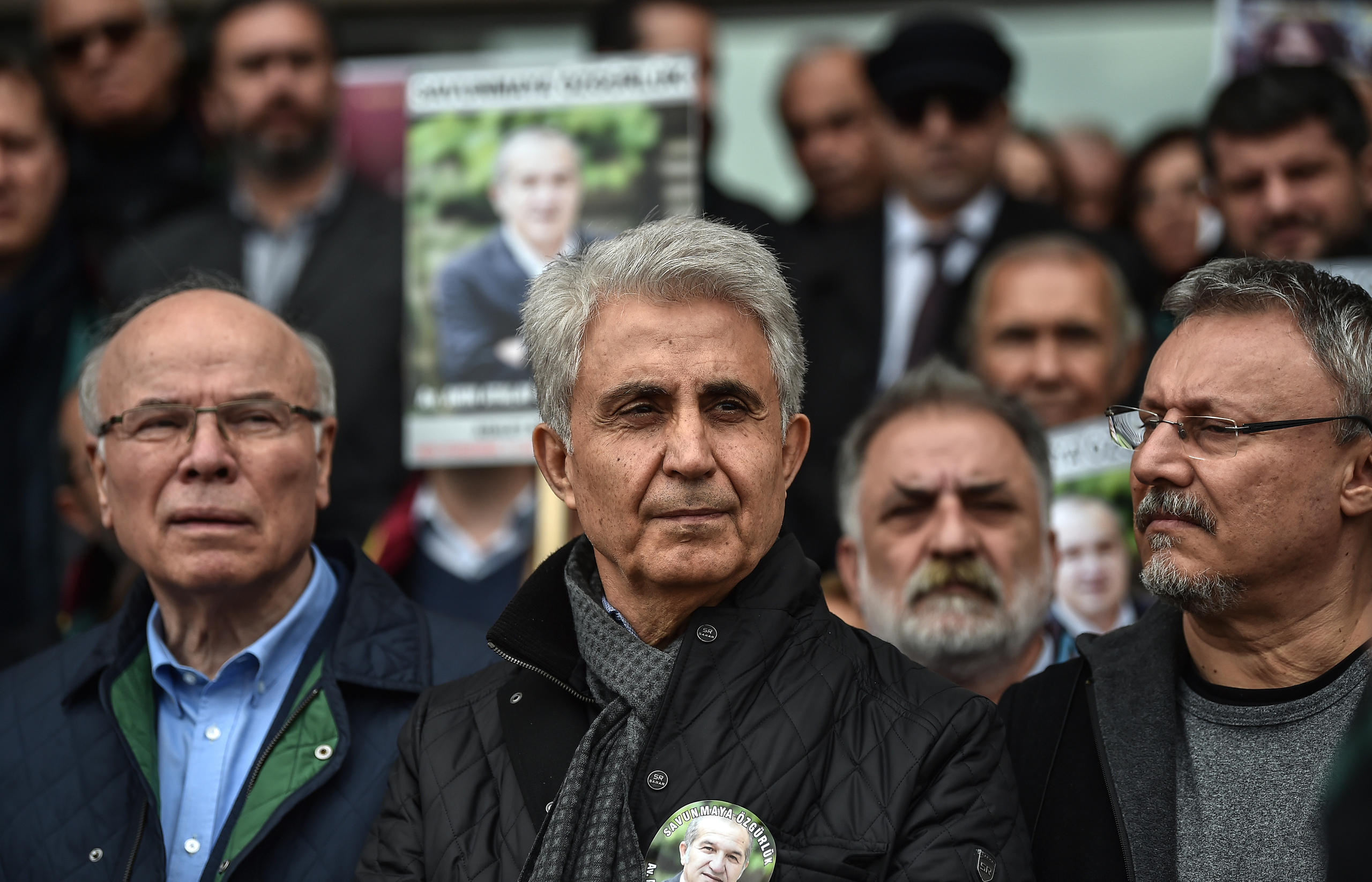
More
Convicted Turkish caricaturist awarded Geneva cartoon prize
It could be argued that these incidents are not especially serious, but many, Vincent among them, worry that a climate in which journalists are shouted at can lead, perhaps gradually, perhaps without us even noticing, to a situation where journalists are denied accreditation, have their equipment confiscated, are arrested, beaten in detention, finally killed.
Deadly year
Vincent points out that 2018 is already one of the deadliest on record for journalists; 69 have died doing their jobs this year alone, compared with 65 for the whole of 2017. Some, RSF knows, were deliberately targeted.
“We are seeing a direct connection between this hostile rhetoric…it is almost encouraging violence,” she says.
Here, Vincent says, the UN has an important role to play. For a start, she points out, the UN is often the only body through which groups like RSF can raise concerns about journalists’ safety with countries in which they may be at risk.
And RSF would like to see a UN expert appointed with a specific mandate related to the safety of the media. The special rapporteur on freedom of expression is, Vincent believes, very important, but that mandate is becoming very broad.
Convention for journalists?
Another, smaller, organisation dedicated to the safety of journalists is the Geneva-based Press Emblem Campaign (PEC). Its president Hedayat Abdelnabi believes there should be an international convention to protect journalists.
“The absence of such a convention helps impunity and the spread of attacks against journalists,” she says.
PEC would like to see an international conference dedicated to creating such a convention, a process Abdelnabi believes is “long overdue”.
Certainly, we journalists should be encouraging the diplomats to kick this issue up the UN agenda, to show solidarity with our colleagues working in the world’s most dangerous and repressive regions, and to stop the insidious erosion of our freedom to work which we are witnessing in more liberal democracies.
Because the ticking off in Geneva for asking an awkward question is turning, in more and more places, into something much more sinister.
You can follow Imogen Foulkes on twitter at @imogenfoulkes, and send her questions and suggestions for UN topics.

In compliance with the JTI standards
More: SWI swissinfo.ch certified by the Journalism Trust Initiative
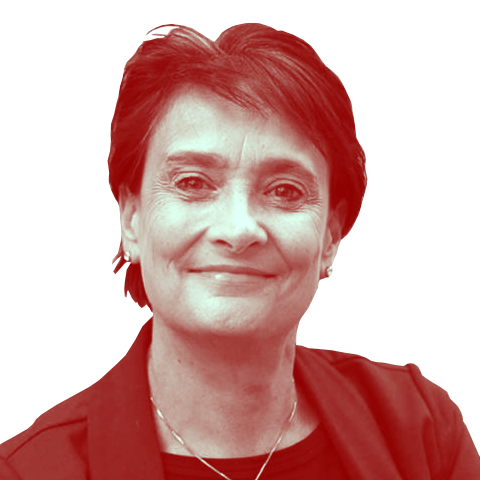
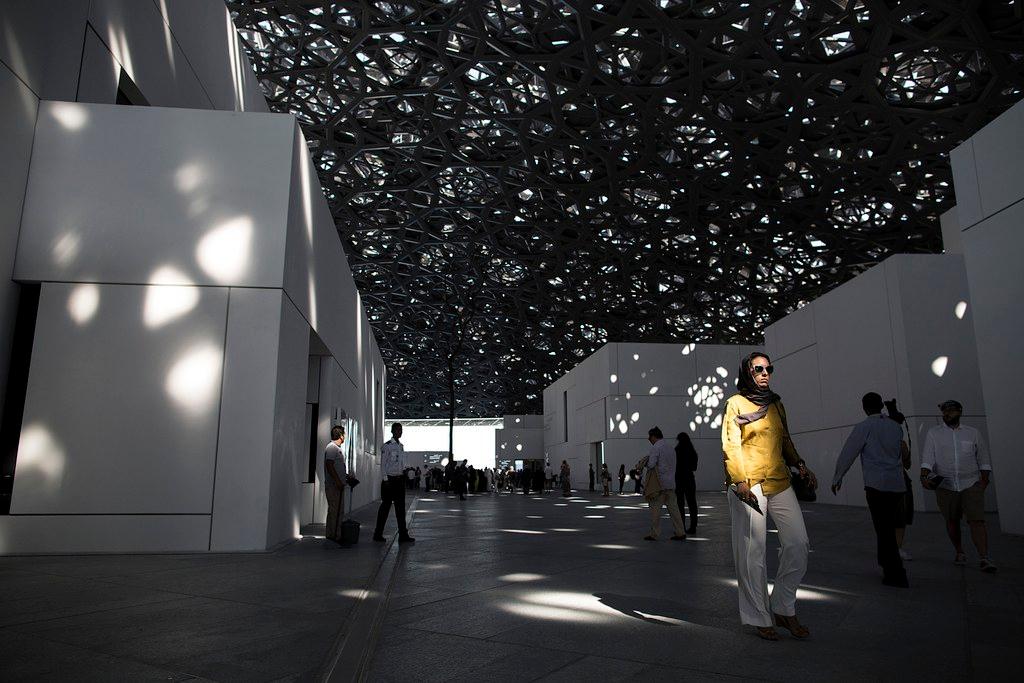
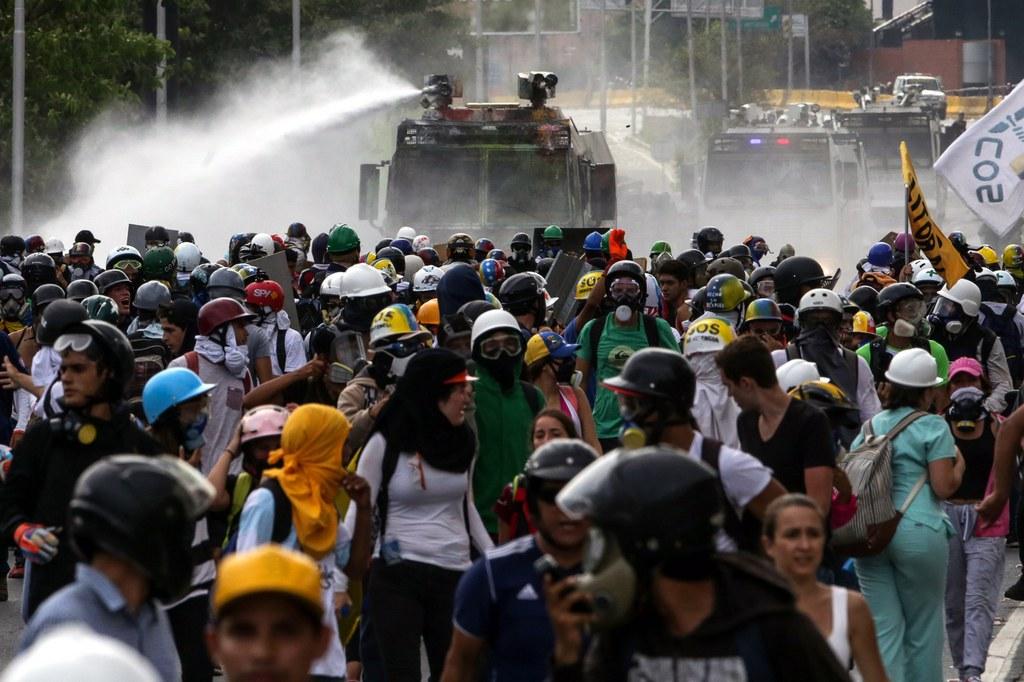
You can find an overview of ongoing debates with our journalists here. Please join us!
If you want to start a conversation about a topic raised in this article or want to report factual errors, email us at english@swissinfo.ch.